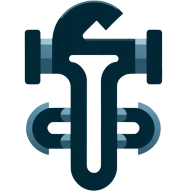4 Best Tips for Using and Caring for Plumbing Tools
Unlock the secrets of maintaining your plumbing toolkit with advice straight from the industry's seasoned veterans. This article distills essential tips for the optimal use and care of your plumbing tools, safeguarding their longevity and performance. Gain the upper hand in tool management through expert recommendations designed to steer you clear of common pitfalls and extend the lifespan of your equipment.
- Clean and Dry Tools Daily
- Protect Tools from Moisture and Debris
- Treat Tools Like Your Truck
- Store Tools Properly to Extend Lifespan
Clean and Dry Tools Daily
The best advice we've received? "Take care of your tools, and they'll take care of you." Simple, but true. One tip that's made a big difference is cleaning and drying tools at the end of every day--especially after working in wet crawl spaces or around corrosive materials. It takes five minutes, but it's saved us from rusted pipe wrenches and seized-up cutters more times than we can count.
If you want your tools to last, treat them like part of the crew--not just gear in the truck.
Protect Tools from Moisture and Debris
One invaluable piece of advice I've received regarding the care of plumbing tools is to clean and dry them thoroughly after each use. This simple yet effective practice prevents the buildup of dirt and grime, which can lead to corrosion and diminished performance over time. By ensuring tools are free from moisture and debris before storing them, I've significantly extended their lifespan and maintained their reliability.
Additionally, storing tools in a cool, dry place further protects them from environmental factors that could cause damage. Implementing these habits has not only preserved the condition of my tools but also ensured they're always ready for optimal performance when needed.
Treat Tools Like Your Truck
The best advice I ever received about caring for plumbing tools was simple but memorable: "Treat your tools like your truck--if you take care of them, they'll take care of you."
One tip that has made a significant difference over the years is to clean and dry tools after every job, especially those that come into contact with water, grime, or harsh materials. It only takes a few minutes, but it prevents rust, keeps moving parts working smoothly, and helps you catch any early signs of wear before a breakdown occurs on the job.
We also encourage our team to store tools properly, not just toss them in the back of the van. Organized tool storage not only extends the life of the equipment but also saves time when you're out in the field.
Good tools aren't cheap, and when you rely on them every day, a little maintenance goes a long way in keeping jobs running efficiently and safely.

Store Tools Properly to Extend Lifespan
One piece of advice that has stuck with me over the years about maintaining plumbing tools is the importance of proper cleaning and storage. After each use, I clean my tools thoroughly, wiping off any grime, moisture, or debris, which can accelerate wear and tear. Especially with tools like pipe wrenches and pliers, keeping them dry prevents rust and ensures they operate smoothly. Storage is equally crucial; I learned to never toss tools haphazardly into a toolbox where they can get banged up. Instead, each tool has a specific spot or pouch, which protects them from being jostled around and damaged.
A particularly handy tip that I was given was to periodically check and oil the moving parts of tools like wrenches and cutters. This practice not only keeps them working efficiently but also significantly extends their lifespan by reducing friction and wear. Consistent care and routine checks of your tools can save a lot of money in the long run, as it prevents the premature need for replacements. Remember, a little effort in maintenance can lead to big savings and smoother work down the line.



